Honoring A Legacy of Leaders: The Jeanes Fellowship
Key Points
-
You can make changes from wherever you are.
-
Iteration and Liberatory Design are great methods to get to know a community and design solutions that last.
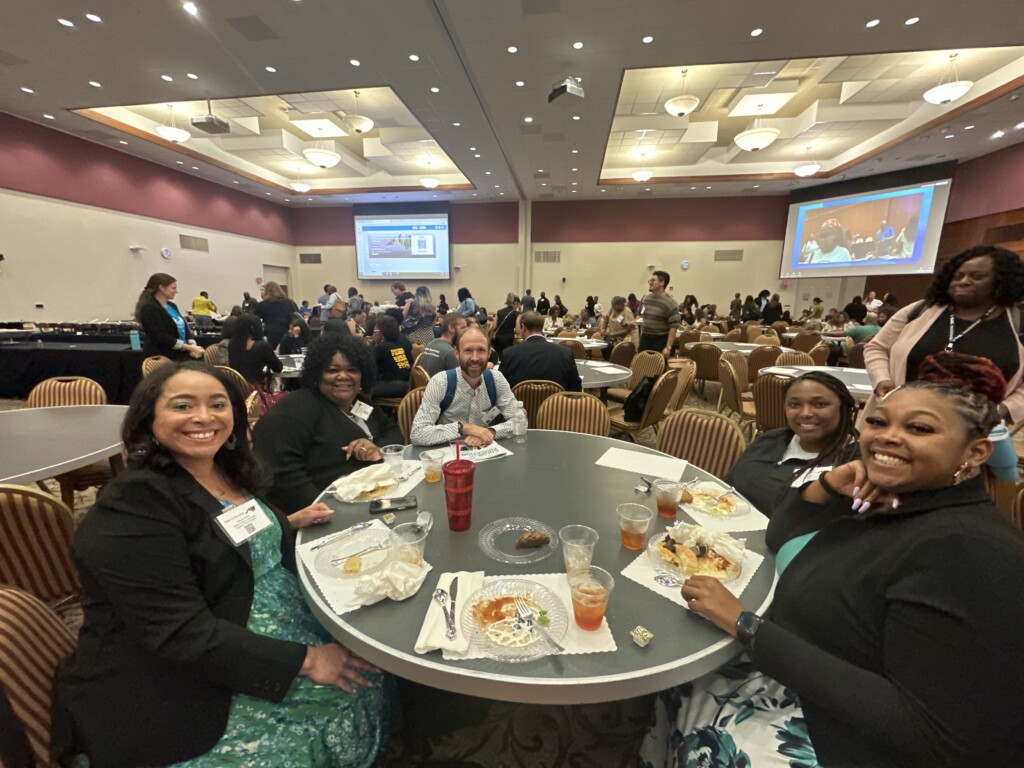
In the Jim Crow era of the American South, Jeanes Teachers, otherwise known as Jeanes Supervisors, were women of color who functioned as superintendents for black schools. These teachers were dedicated to community benefits such as improving public health, living conditions, and teacher training. Over time, these Jeanes teachers became recognized by the informal motto of do “the next needed thing.”
At the time, Jeanes Teachers were funded through the Negro Rural School Fund, established by the Anna T. Jeanes Foundation in 1907 with an endowment of $1 million and recruiting Booker T. Washington to be the chairman of the Trustees. By 1909 -1910, there were 129 Jeanes Teachers operating in thirteen southern states. Soon, North Carolina took the lead with 36 Jeanes teachers by 1915.
To build on this legacy, in 2022 North Carolina created the Jeanes Fellowship. The Jeanes Fellows Program is a partnership between The Innovation Project (TIP) and the Dudley Flood Center designed to provide consistent and intentional infrastructure to support community-school relationships using an equity lens.
The revitalized program builds upon and operationalizes needed action from 3 foundational documents:
- The Leandro Action Plan: Sound Basic Education for All: An Action Plan for North Carolina can be found here. A few key recommendations called for a qualified and well-prepared teacher in every classroom and finance and resource allocation.
- DRIVE Task Force Final Report and Recommendations: a report with 10 key recommendations to increase teacher diversity. Recommendations include affordable postsecondary access, diversity goals for schools and districts, and support networks for educators of color.
- NC State Board of Education Statewide Strategic Plan: a plan grounded in the guiding principles of equity and the whole child with goals to eliminate opportunity gaps, improve school and district performance, and increase educator preparedness to meet the needs of every student, all to be fulfilled by 2025.
This first cohort of fellows is working hard to advance equity, diversity and cultural responsiveness in districts across North Carolina. From EdPrep partnerships with community colleges to micro-credentials through the diversity office, these educators and district-level leaders are making a huge difference in North Carolina.
A New Approach to Advocacy Curriculum
One Jeanes Fellow, Saletta Ureña, is laser-focused on advancing racial and culturally responsive curriculum across Guilford County Schools in a new district role focused on supports and leaning into her fellowship position. As a veteran classroom teacher (Spanish and Language Arts), it is important to her not to get too far removed from “what kids are doing in the classroom.”
Her new district-level position allows her to find a unique space within schools and systems change. “Some people told me to try for principal, but I’ve never wanted that role,” said Saletta. In her current role, she reports directly to the Chief of Staff and is grateful for the ways that the district has supported her growth and recent training in access mapping and liberatory design. “[Guillford has] all the bells and whistles,” she says.
In her classroom days, Saletta began to recognize that she heavily focused on building a decolonized curriculum. This became the unifying thread that tied each of her roles together. She began to notice that students were not participating in spaces that encouraged good civic behavior: discourse, tolerance and advocacy. “Student councils are a great practice ground for some of the core mechanisms of civics, but they’re not diverse, and their goals aren’t diverse.” With the Jeanes Fellowship, Saletta was able to start changing that narrative.
Using her curriculum background, Saletta focused on creating a no-prep lesson for social studies teachers with a focus on advocacy. Much of this curriculum hinged on a children’s book that was perfect for second graders. Unfortunately, that book was flagged by some recent legal challenges, and Saletta had to do a quick pivot. At a time in which the political landscape is uniquely fraught, particularly around what’s being taught, Saletta adds, “This work is not about indoctrination, it’s about systems recognition.”
Saletta was able to use the unveiling of a recent newcomer school named after the de-segregationist Sylvia Mendez to build and announce a curriculum around her book Separate is Never Equal. Currently, the curriculum is best suited for 5th-8th graders. She already has one school on board and ample funding for many more students to participate, so she begins the courting process to make the lesson a whole grade requirement or, perhaps even, a whole course.
“North Carolina is one of the states that is constitutionally bound to provide an ‘adequate education’ to all learners,” said Saletta. “If we’re not graduating children with core literacies, character and understanding of the systems they are in and how to participate we are quite literally breaking the law.”
An Iterative Journey
During the planning phase of the project, the Jeanes Fellows began working with Open Way Learning (OWL) to hone their liberatory design skills. In one half-day design sprint, Fellows analyzed historical Jeanes supervisors’ case studies along with current data from their home districts. This analysis helped to ground their projects in empathy data of their place and people, including the district’s learners, their families, communities, and educators. With this foundation, they then built empathy maps around each stakeholder’s point of view, uncovering common problems hindering their learning, health, and opportunities in school, home, and the community.
This session engaged Saletta and gave her the materials she needed to communicate an emerging project idea to her leadership teams. She later explained, “Liberatory Design is EYE OPENING. My immediate takeaway from the initial session was that this was a more in-depth way of looking at and including stakeholder groups.”
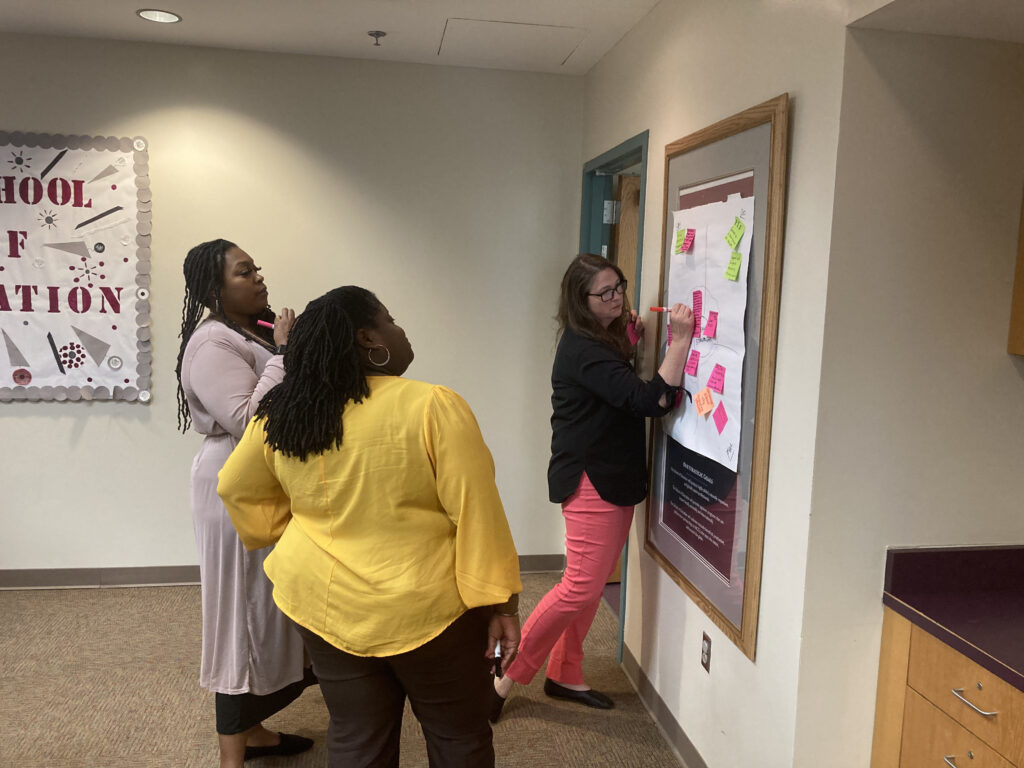
In another example, Jessica Parker in Edgecombe County Schools led community co-design sessions in order to build trust between communities and support this shifting population of learners (and their conflicted families). Her experience using design thinking in prior school team collaborations, also to great effect for her learners and educators, gave her a valuable foundation for picking up and shaping liberatory design tools to engage and connect the goals of her district leadership, affected communities, and their learners and families.
In a second half-day sprint as the school year started their projects, Fellows reconvened to iterate on their original ideas with agile prototyping tools, starting with a revised problem definition based on the power of story and NOISE strategic planning. In this meeting, they were encouraged to see their role as developing and engaging with their district’s equity “coalition of the willing” by identifying the innovators and early adopters they could build relationships and partnerships with as they piloted their Fellowship efforts.
Saletta believes that this experience has given her a name for something that she has always had, a “Jeanes Fellowship Mindset,” and she hopes to spread that message at educator gatherings in the years to come. This mindset can help her and other Fellows ensure that their projects’ outcomes translate into equitable change in their districts based on a foundation of trust, collaboration, and innovation.
“You can make changes from wherever you are.”
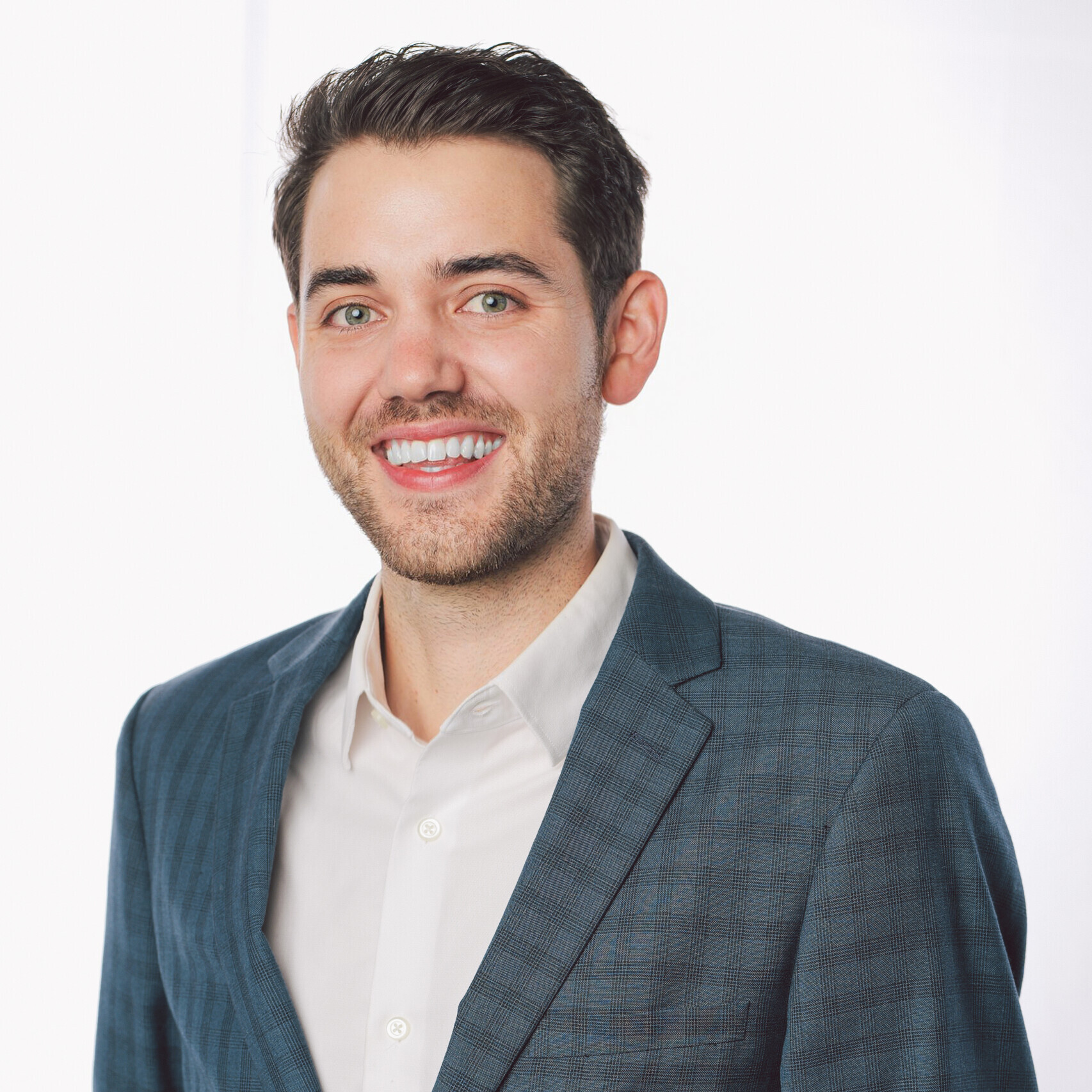

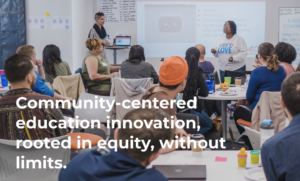
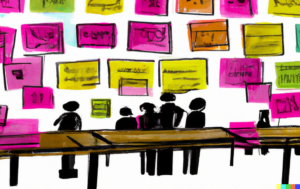
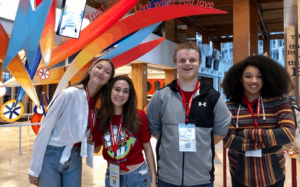
0 Comments
Leave a Comment
Your email address will not be published. All fields are required.